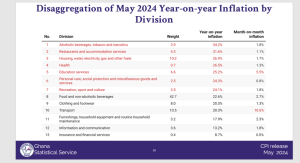The Managing Director of the International Monetary Fund (IMF), Ms. Kristalina Georgieva, has pledged to support Ghana’s new Finance Minister, Dr. Mohammed Amin Adam, in his new role.
Ms. Georgieva expressed the Fund’s support in her congratulatory message to Dr. Amin Adam on his recent appointment as Finance Minister, while assuring him of the International Monetary Fund’s continued commitment to him in these endeavors.
She noted that the new minister’s leadership would be essential in sustaining Ghana’s reform effort and in further extending the current momentum of compelling programme performance and gradual economic stabilization.
Currently, Ghana is implementing a three-year, $3 billion loan-support programme with the IMF to restore macroeconomic stability and debt sustainability and lay the foundation for stronger and more inclusive growth.
The country has received the first two tranches, amounting to $1.2 billion, and is looking forward to a second review of the programme.
Dr. Amin Adam, a former Minister of State at the Finance Ministry, is replacing Mr. Ken Ofori-Atta as substantive minister, following President Nana Addo Dankwa Akufo-Addo’s ministerial reshuffle last Wednesday, February 14.
Meanwhile, the announcement of the new Finance Minister could not stop the marginal increase in inflation for the month of January.
According to the latest Consumer Price Index report released by the Ghana Statistical Service for January, inflation rose marginally to 23.5 percent year-on-year in January, compared to 23.2 percent in December 2023.
This means that in January 2024, the general price level was 23.5 percent higher than in January 2023. Month-on-month inflation between December 2023 and January 2024 was 2.0 percent.
It remains to be seen how Mohammed Amin Adam will rein in the unexpected u-turn in the rise of inflation in January.
Though food inflation fell to 27.5 percent of all inflation compared to last month’s food inflation of 28.7 percent, it remained high, with the month-on-month food inflation being 1.6 percent.
According to the GSS, non-food inflation also contributed 20.5 percent, compared to last month’s non-food inflation of 18.7 percent and month-on-month inflation of 2.4 percent.
Inflation for imported items was 21.9 percent compared to that for locally produced items, which was 23.8 percent.
On a regional inflation basis, the Eastern Region maintained the record for the highest inflation rate of 37.1%. The Greater Accra Region maintained the record of 14.4 percent as the lowest region.














